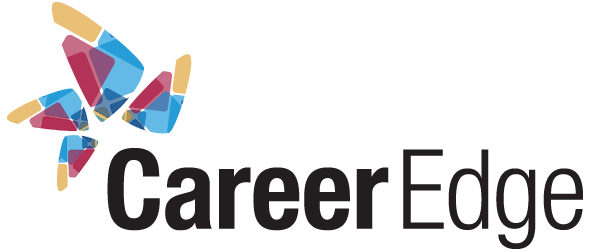Let’s get one thing right off the bat: if an employer rejected you because you lack “Canadian experience,” they likely broke the law. And it’s time you knew exactly what to do about it.
I’m not going to sugarcoat this – the Canadian experience discrimination is real, frustrating, and affects thousands of qualified newcomers every year. But here’s what most people don’t realize: you have more power than you think. The law is on your side, and there are concrete steps you can take to not just overcome this discrimination, but to turn it into your competitive advantage.
Your Rights Are Stronger Than You Think
The Ontario Human Rights Commission didn’t mince words when it declared that requiring “Canadian experience” is discriminatory on its face. This isn’t just a guideline – it’s backed by legal precedent and can result in serious consequences for employers who violate it.
Under the Ontario Human Rights Code, employers cannot discriminate based on:
- Place of origin
- Ethnic origin
- Ancestry
- Race
- Citizenship status
When employers ask for “Canadian experience,” they’re often discriminating on these very grounds, whether they realize it or not.
The Real Truth About “Canadian Experience”
Here’s what employers are really saying when they ask for Canadian experience – and why it’s problematic:
What they claim they need: “Someone who understands how things work here.”
What they’re actually doing: Assuming international experience is less valuable
Why it’s illegal: It discriminates based on where you come from
What they claim they need: “Good communication skills”
What they’re actually doing: Assuming Canadian experience = language skills
Why it’s illegal: Language skills can be tested directly without geographic requirements
The truth is, most skills employers want can be found in professionals worldwide. Canadian experience is often just lazy hiring wrapped in discriminatory assumptions.
Your Power Moves: 5 Ways to Respond
When faced with Canadian experience discriminatory requests, you have options. Here are five strategic responses, from diplomatic to direct:
Power Move #1: The Professional Redirect
“I understand you want to ensure I can excel in this role. While my experience comes from [country/industry], I have [specific relevant skills] that directly address your needs. I’m excited to discuss how my unique perspective can contribute to your team’s success.”
When to use: When you want to keep things positive while showcasing your value
Why it works: Refocuses on your strengths while subtly highlighting the value of diverse experience.
Power Move #2: The Confident Challenge
“You might not be aware, but requiring Canadian experience can violate the Ontario Human Rights Code unless it’s a legitimate job requirement. I’m confident my qualifications demonstrate I can excel in this role. Would you like to discuss my relevant experience?”
When to use: When you’re comfortable being direct about your rights
Why it works: Educates the employer while positioning you as knowledgeable about your rights
Power Move #3: The Skills Showcase
“Let me share specific examples of how I’ve handled [relevant job challenge] in my previous roles. My approach has consistently delivered [specific results]. I’d love to discuss how these skills translate to success in your organization.”
When to use: When you want to bypass the discrimination and focus on competency completely
Why it works: Makes the Canadian experience question irrelevant by proving your capabilities.
Power Move #4: The Value Proposition
“Actually, my international experience gives me unique insights that could benefit your team. For instance, [specific example of how your background adds value]. Many companies are actively seeking this kind of diverse perspective to stay competitive.”
When to use: When you’re confident about the value of your background
Why it works: Reframes your “lack” of Canadian experience as a competitive advantage.
Power Move #5: The Direct Confrontation
“That question appears to violate human rights legislation. I’m legally entitled to equal consideration regardless of where I gained my experience. Can we focus on how my qualifications meet your job requirements?”
When to use: When you’re prepared to take a strong stand
Why it works: Makes it clear you know your rights and won’t tolerate discrimination
Building Your Armor: Preparation Strategies
Research Like a Pro
Before any interview:
- Study industry-specific terminology used in Canada
- Research the company’s competitors and market position
- Understand key regulations or standards in your field
- Familiarize yourself with Canadian professional associations
Create Your Evidence Portfolio
Document everything that proves your competency:
- Specific achievements and metrics from previous roles
- Certifications and continuing education
- Examples of adapting to new environments successfully
- References who can speak to your abilities
Network Strategically
- Join professional associations in your field
- Attend industry meetups and conferences
- Connect with other successful immigrants in your sector
- Build relationships with potential mentors
When Discrimination Happens: Your Action Plan
If you believe you’ve faced Canadian experience discrimination, here’s your step-by-step response:
Immediate Actions (Within 24-48 Hours)
- Document everything: Write down exactly what was said, when, and by whom
- Save communications: Keep emails, job postings, and any written correspondence
- Gather evidence: Screenshot job postings that mention Canadian experience requirements
Short-term Actions (Within 2 Weeks)
- Seek support: Contact organizations like JVS Toronto or local settlement agencies
- Get legal advice: Reach out to the Ontario Human Rights Legal Support Centre
- Report the incident: File complaints with the appropriate authorities
Filing Your Complaint: Where and How
For Provincial Employers (Most Common):
- Where: Human Rights Tribunal of Ontario
- Timeline: 6 months from the incident
- Process: Online application with supporting documents
- Cost: No fees for filing
For Federal Employers:
- Where: Service Canada tip line
- Timeline: 6 months from the incident
- Process: Online form or phone report
- Follow-up: Canadian Human Rights Commission investigation
What You Need:
- Detailed incident description
- Supporting documentation
- Witness information if available
- Evidence of the discriminatory practice
Turning Rejection into Opportunity
Here’s something most career coaches won’t tell you: facing Canadian experience discrimination can actually strengthen your position if you handle it right.
The Compensation Angle
Human rights violations can result in financial compensation for:
- Lost wages from missed opportunities
- Injury to dignity and self-respect
- Pain and suffering caused by discrimination
Successful complainants have received thousands of dollars in settlements.
The Advocacy Opportunity
By standing up to discrimination, you’re not just helping yourself – you’re making it easier for the next newcomer. Every complaint filed makes employers more aware of their legal obligations.
The Competitive Advantage
Companies that discriminate miss out on top talent. Forward-thinking employers who value diverse experience are often better places to work, with more inclusive cultures and growth opportunities.
Your Success Stories Arsenal
Here are real examples of how to position common situations:
International Project Management Experience: “Managing cross-cultural teams across different time zones has prepared me exceptionally well for Canada’s diverse workplace. I’ve successfully delivered projects 20% faster than the industry standard by leveraging diverse perspectives.”
Different Regulatory Environment Experience: “Working under different regulatory frameworks has made me highly adaptable and thorough in compliance matters. I always research and master new requirements quickly – a skill that will serve your organization well.”
Language and Communication: “Being multilingual has enhanced my communication skills significantly. I can explain complex concepts to diverse audiences – a crucial skill in Canada’s multicultural business environment.”
Resources That Actually Help
Immediate Support:
- JVS Toronto: Career counseling and advocacy support
- Ontario Human Rights Legal Support Centre: Free legal advice and representation
- Local settlement agencies: Community-specific networking and support
Long-term Development:
- Professional associations: Industry-specific networking and credentialing
- Bridging programs: Sector-specific training for internationally trained professionals, like our organization
- Mentorship programs: One-on-one guidance from established professionals
Legal Action:
- Human Rights Tribunal of Ontario: File discrimination complaints
- Employment lawyers: For complex cases or significant damages
- Community legal clinics: Free or low-cost legal assistance
The Mindset Shift That Changes Everything
Here’s the perspective shift that successful newcomers make: Your international experience isn’t a deficit – it’s a premium skill set.
In today’s global economy, companies need employees who:
- Understand diverse markets and cultures
- Can adapt quickly to new environments
- Bring fresh perspectives to stale problems
- Navigate complexity with resilience
You have all of these skills. Canadian experience discrimination isn’t about your qualifications – it’s about outdated hiring practices that you can help change.
Your 30-Day Action Plan
Week 1: Knowledge and Preparation
- Research your rights under human rights legislation
- Prepare your response strategies for Canadian experience questions
- Update your resume to highlight transferable skills and achievements
Week 2: Network Building
- Join relevant professional associations
- Attend at least one industry networking event
- Connect with 10 professionals in your field on LinkedIn
Week 3: Skill Demonstration
- Volunteer for projects that showcase your abilities
- Complete any Canadian-specific certifications if relevant
- Build a portfolio of work samples
Week 4: Strategic Application
- Apply to companies known for inclusive hiring practices
- Use your network for informational interviews
- Practice your response strategies with a trusted friend or mentor
The Bottom Line
Canadian experience discrimination is illegal, unfair, and increasingly recognized as bad business practice. But you don’t have to be a victim of it.
Armed with knowledge of your rights, strategic response techniques, and a strong support network, you can turn this challenge into an opportunity to showcase your unique value. Every time you stand up to this discrimination, you make the path easier for others following behind you.
Remember: Canada needs your skills, your perspective, and your contributions. Don’t let discriminatory hiring practices convince you otherwise. The law protects your right to equal treatment, and there are people and organizations ready to support you in claiming that right.
Your career in Canada doesn’t start when you get “Canadian experience” – it starts when you decide to advocate for yourself and demand the equal treatment you deserve. The power is in your hands.

